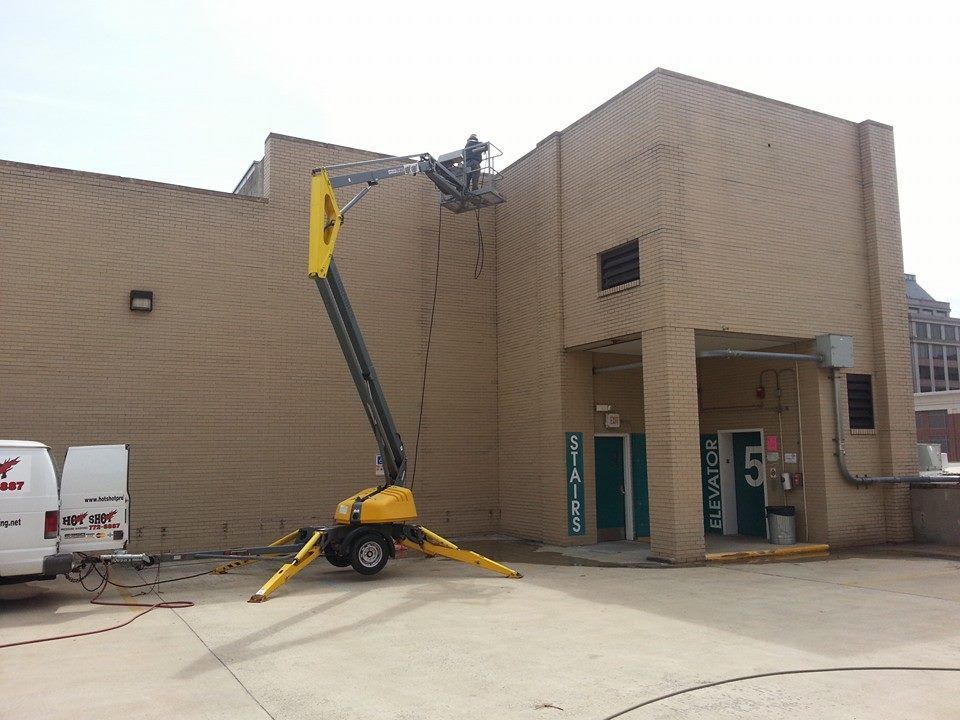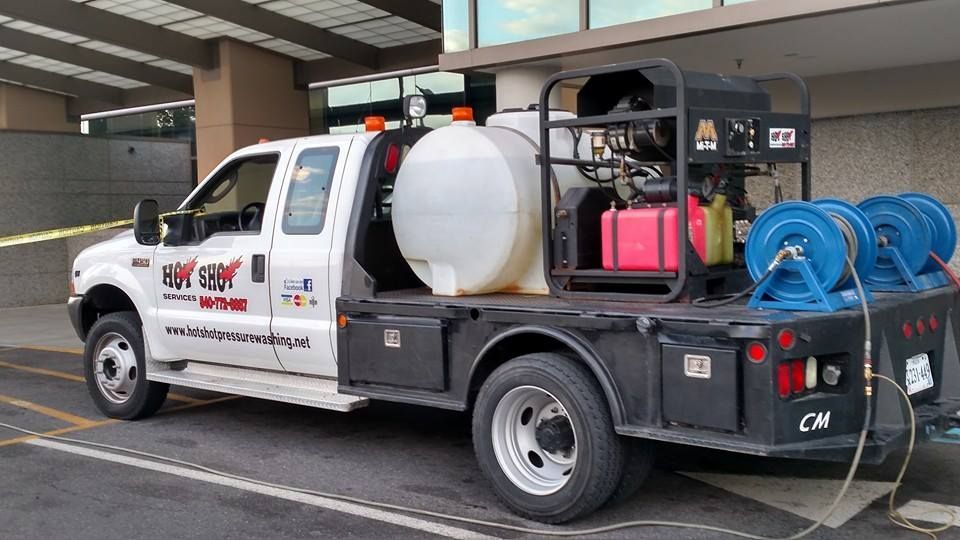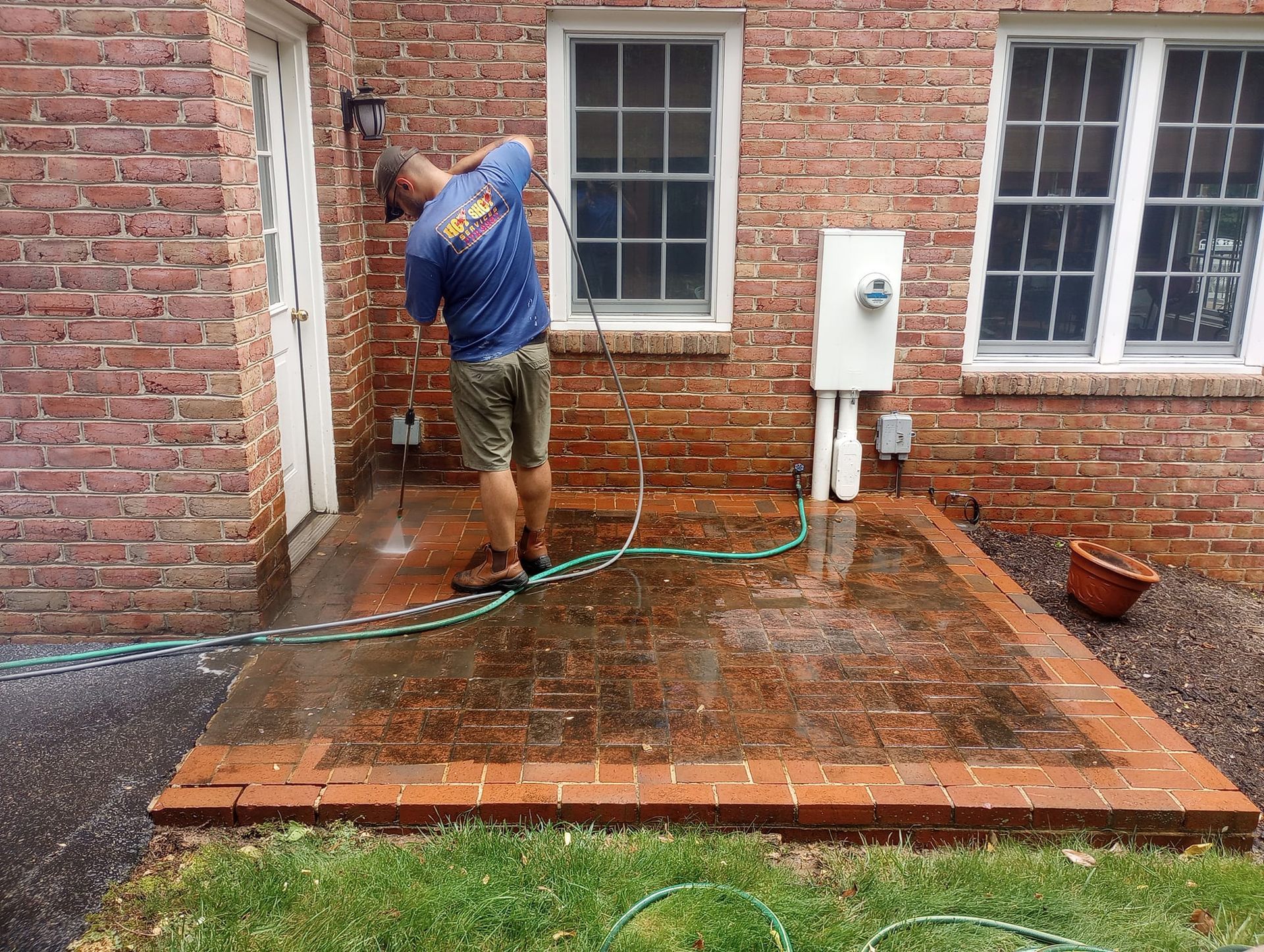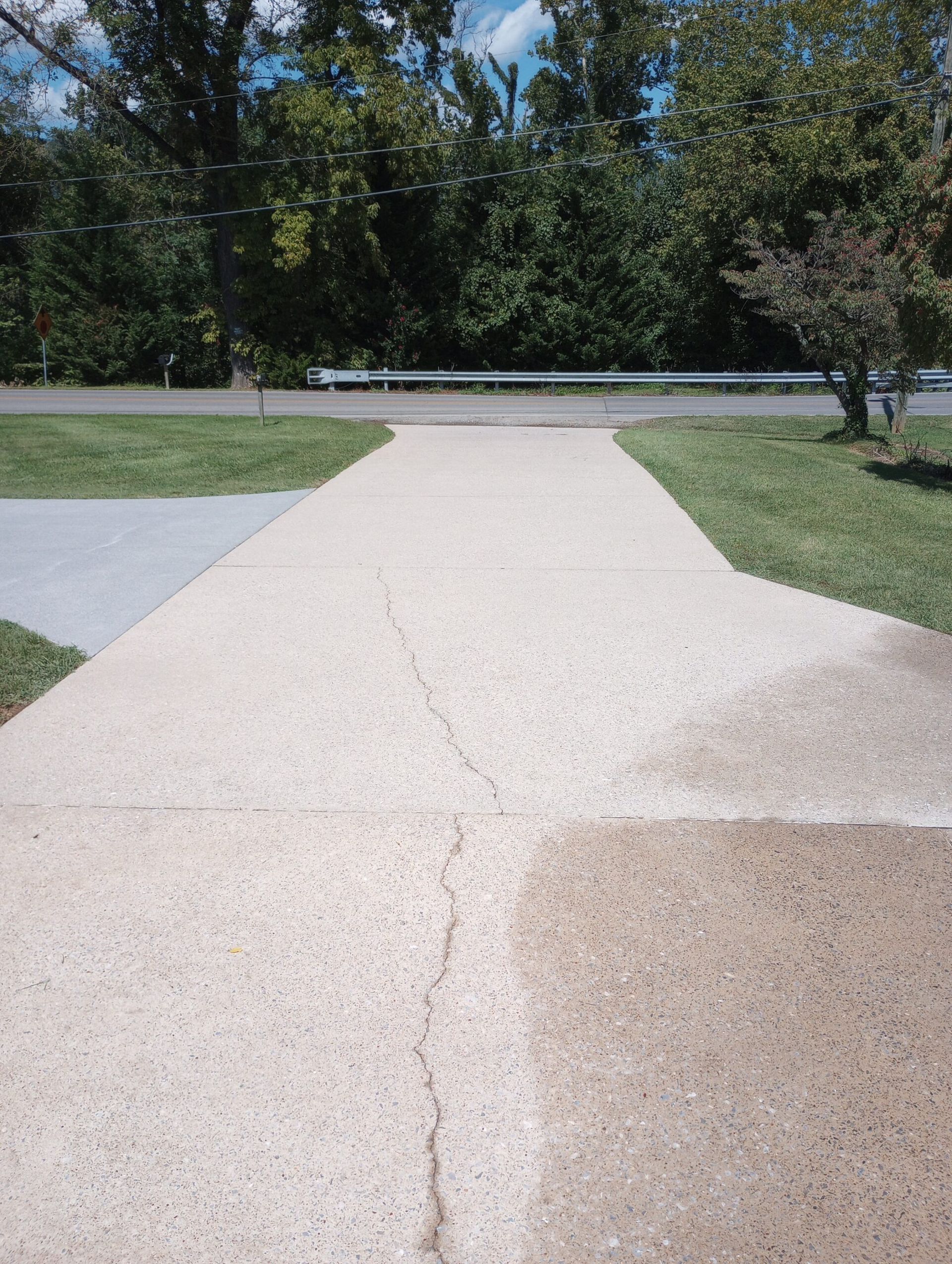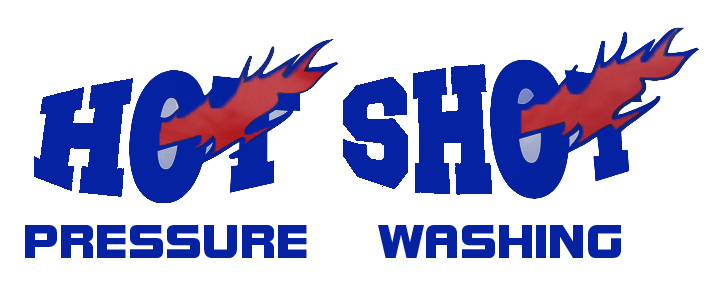The Ultimate Guide to Pressure Washing and Soft Washing for Residential and Commercial Properties
Maintaining the exterior of your property, whether it's a home or a business, can seem like an uphill battle. Dirt, grime, mold and mildew always seem to come back regardless of how many times you clean. The build-up that occurs can make even the most beautiful properties look neglected and can also cause long-term damage. This is where cleaning services for exteriors come into play. In this ultimate guide, we will look at pressure washing versus soft washing and help you decide which one is best for your specific needs. By reading through this blog post to the finish line, you will be conversant with both processes’ mechanisms, their advantages as well as factors to consider when selecting one.
What is Pressure Washing?
High-pressure water is used during this process to remove dirt, grime, mold and other particles from different surfaces. This technique is very effective especially in handling tough cleaning assignments.
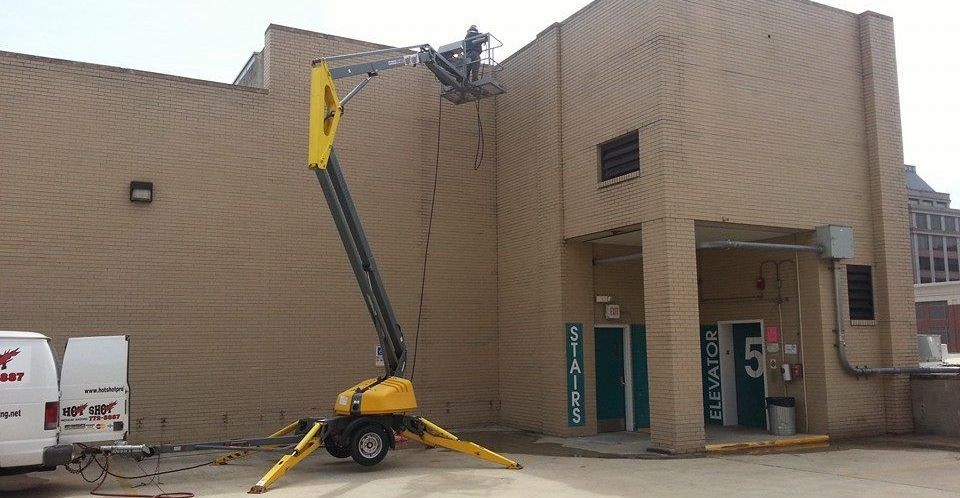
How Does Pressure Washing Work?
Pressure washers use a pump to increase the pressure of water, creating a strong stream that can clean surfaces thoroughly. The force of the water is measured in PSI (pounds per square inch), and the flow of water is measured in GPM (gallons per minute). High PSI and GPM ratings mean more cleaning power.
Pressure washing typically involves using various nozzles that adjust the spray pattern and intensity. These nozzles can create a direct stream for focused cleaning or a wider spray for covering large areas. The versatility of pressure washers makes them suitable for a range of tasks, from removing stubborn grease stains on concrete to stripping paint from surfaces.
Best Uses for Pressure Washing
Pressure washing is ideal for hard surfaces that can withstand high pressure. Some common applications include:
- Concrete Driveways and Sidewalks: Removes oil stains, dirt, and debris, restoring the surface's appearance.
- Brick and Stone Walls: Cleans moss, mold, and accumulated dirt, enhancing the overall look.
- Metal Surfaces: Ideal for cleaning gutters, downspouts, and metal siding.
- Patios and Decks: Effective for removing algae, moss, and grime, making outdoor spaces safer and more appealing.
Benefits of Pressure Washing
- Efficiency: Pressure washing can clean large areas quickly, saving time and effort.
- Deep Cleaning: The high-pressure water can remove deep-seated dirt and stains that regular cleaning can't.
- Improved Curb Appeal: Regular pressure washing can keep your property looking fresh and well-maintained, which is especially important if you’re planning to sell or rent it.
- Preventive Maintenance: It helps in preventing the buildup of mold and mildew, which can cause long-term damage to surfaces and structures.
What is Soft Washing?
Soft washing uses low-pressure water combined with special cleaning solutions to remove dirt, algae, mold, and other contaminants. This method is gentle on surfaces, making it ideal for delicate materials that could be damaged by high-pressure water.
How Does Soft Washing Work?
Soft washing systems apply a cleaning solution to the surface, allowing it to soak in and break down contaminants. After the solution has done its job, it is rinsed away with low-pressure water, leaving the surface clean and sanitized.
The cleaning solutions used in soft washing typically contain surfactants, which help to emulsify dirt and organic matter, and biocides, which kill mold, mildew, and algae. These solutions are biodegradable and designed to be safe for plants and animals, making soft washing an environmentally friendly option.
Best Uses for Soft Washing
Soft washing is suitable for more delicate surfaces, including:
- Roof Shingles: Removes moss and algae without damaging the shingles.
- Vinyl Siding: Cleans dirt and mildew without causing warping or damage.
- Wood Paneling and Fences: Gentle enough to prevent splintering and surface damage.
- Stucco: Effectively cleans without causing cracks or surface erosion.
- Outdoor Furniture: Safe for cleaning patio furniture, ensuring longevity and cleanliness.
Benefits of Soft Washing
- Surface Protection: Low-pressure water prevents damage to delicate surfaces, preserving their integrity and appearance.
- Long-Lasting Results: The cleaning solutions kill mold and mildew at their roots, preventing regrowth for a longer period and reducing the frequency of cleaning.
- Eco-Friendly: Soft washing solutions are often biodegradable and less harmful to the environment compared to harsh chemical cleaners.
- Versatility: It can be used on a variety of surfaces that cannot withstand high pressure, making it a flexible option for different cleaning needs.
Comparing Pressure Washing and Soft Washing
When deciding between pressure washing and soft washing, it’s essential to consider the type of surface and the nature of the dirt or stains. Here’s a detailed comparison to help you make an informed decision.
Surface Suitability
- Pressure Washing: Ideal for hard, durable surfaces like concrete, brick, and metal. It’s excellent for removing tough stains and heavy grime.
- Soft Washing: Best for delicate surfaces such as roofs, vinyl siding, wood, and stucco. It effectively cleans without causing damage.
Cleaning Power
- Pressure Washing: Uses the force of water to blast away dirt and grime. Perfect for heavy-duty cleaning tasks.
- Soft Washing: Uses cleaning solutions to break down dirt and organisms, followed by a gentle rinse. Great for thorough cleaning without abrasion.
Longevity of Clean
- Pressure Washing: Provides an immediate clean look but may not prevent future growth of mold and mildew.
- Soft Washing: The chemical treatment kills organisms at the root, leading to a longer-lasting clean and reducing the need for frequent cleanings.
Environmental Impact
- Pressure Washing: Primarily uses water, which can lead to significant water usage. Care must be taken to avoid runoff into water systems and to use environmentally safe detergents when necessary.
- Soft Washing: Uses biodegradable chemicals, which can be more environmentally friendly if properly handled. The solutions are designed to break down safely and reduce environmental impact.
When to Use Pressure Washing vs. Soft Washing
Here’s a quick guide to help you determine when to use each method:
Use Pressure Washing for:
- Driveways and Sidewalks: To remove oil stains, dirt, and debris efficiently.
- Brick and Stone Walls: For deep cleaning and removing moss, mold, and accumulated dirt.
- Metal Surfaces and Equipment: To maintain gutters, downspouts, and metal siding.
- Patios and Decks: To eliminate algae, moss, and grime, enhancing outdoor spaces.
Use Soft Washing for:
- Roofs: To remove moss and algae without damaging shingles.
- Vinyl Siding: For gentle cleaning that prevents warping or damage.
- Wood Paneling and Fences: To clean without causing splintering or surface damage.
- Stucco and Painted Surfaces: For effective cleaning without causing cracks or erosion.
- Outdoor Furniture: To ensure patio furniture remains clean and lasts longer.
Key Takeaways
Understanding the differences between pressure washing and soft washing is crucial for maintaining your property's exterior. Pressure washing is excellent for hard, durable surfaces and tough cleaning jobs, while soft washing is perfect for delicate surfaces and offers longer-lasting results. Both methods play a vital role in exterior cleaning services, ensuring your property remains clean, attractive, and well-maintained.
By knowing which method to use for different surfaces and situations, you can keep your property in top condition without risking damage. Whether you need to clean your driveway, roof, siding, or patio, choosing the right approach will make all the difference.
Tips for Effective Exterior Cleaning
To get the best results from your exterior cleaning efforts, keep these tips in mind:
- Choose the Right Equipment: Make sure you’re using the appropriate equipment for the job. High-powered pressure washers can cause damage if used on the wrong surfaces.
- Use Quality Cleaning Solutions: Invest in high-quality, biodegradable cleaning solutions for soft washing to ensure effective cleaning and environmental safety.
- Safety First: Always wear protective gear, such as gloves and goggles, to protect yourself from debris and cleaning chemicals.
- Test a Small Area First: Before cleaning a large area, test a small, inconspicuous spot to ensure the method and cleaning solution don’t damage the surface.
- Regular Maintenance: Schedule regular cleanings to prevent buildup of dirt and grime, which can cause long-term damage and make cleaning more difficult.
Conclusion
Maintaining a clean exterior is essential for both residential and commercial properties. Pressure washing and soft washing offer different benefits and are suitable for different surfaces. By understanding their differences and applications, you can choose the best method for your needs, ensuring a clean and well-maintained property.
We hope this guide has provided you with valuable insights into pressure washing and soft washing. Remember, regular exterior cleaning not only enhances the appearance of your property but also helps to prevent long-term damage and maintain its value. Happy cleaning!
